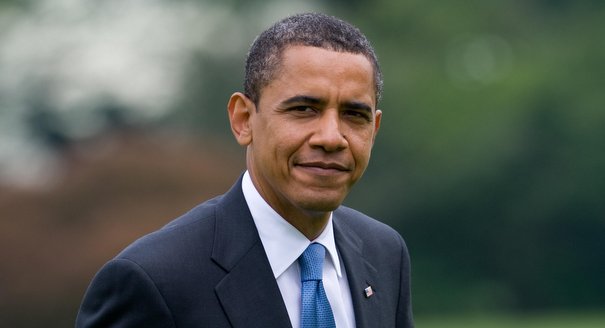Despite considerable challenges, the CPTPP countries and the EU recognize the need for collective action.
Barbara Weisel
{
"authors": [
"David Rothkopf"
],
"type": "legacyinthemedia",
"centerAffiliationAll": "",
"centers": [
"Carnegie Endowment for International Peace",
"Malcolm H. Kerr Carnegie Middle East Center"
],
"collections": [],
"englishNewsletterAll": "",
"nonEnglishNewsletterAll": "",
"primaryCenter": "Carnegie Endowment for International Peace",
"programAffiliation": "",
"programs": [],
"projects": [],
"regions": [
"North America",
"United States",
"Middle East",
"Syria",
"Levant"
],
"topics": [
"Security",
"Foreign Policy"
]
}
Source: Getty
When the opportunity to achieve his goal in Syria without war arose, and even though it was an imperfect solution, President Obama acted with lightning speed.
Source: Foreign Policy
"The test of a first-rate intelligence is the ability to hold two opposed ideas in the mind at the same time, and still retain the ability to function," wrote F. Scott Fitzgerald in The Crack-Up. When he first set these words to paper in 1936, it's pretty certain that he did not imagine they would one day become the core foreign-policy principle of a 21st-century president. Yet because they have, we have been reminded of another important lesson about first-rate minds, second-rate ones, and minds of every quality: Character trumps intellectual ambivalence every time.
It is no doubt simpler for leaders who see things plainly and without nuance. Indeed, doubt is perhaps the most dangerous and relentless enemy of those whose decisions carry great weight. But as we saw in the Iraq war, "slam-dunk" certainty is no guarantee of either success or good judgment. In the early years of George W. Bush's presidency, in my view, a lack of critical second-guessing among policymakers undermined what were the president's fundamentally good intentions.Barack Obama has been afflicted by the ability to see multiple sides of any issue since he took office. His Afghanistan policy initiative was, until recently, the outstanding example of this characteristic. After a lengthy internal debate, he presented in one speech both the decision to escalate U.S. involvement in that country and the announcement that the United States would be leaving on a certain date. It was the first illustration of what I described at the time as the Groucho Marx approach to foreign policy, referring to the comic icon's signature song, "Hello, I Must Be Going." But we have since seen other examples of Obama's ambivalence -- opposing the Bush administration's abuses of international law, yet violating sovereignty countless times with expanded drone attacks; standing up for civil liberties, yet overseeing the greatest expansion of our intrusive surveillance state ever; pivoting to Asia, but still regularly being drawn back to the Middle East; going to Congress to get approval for action in Syria and then reserving the right to take action on his own.
You might see this kind of vacillation as a sign of confusion rather than a manifestation of a first-rate intelligence. Indeed, it's almost certainly a bit of both. But even when doubts persist, underlying instincts continue to drive policy toward its ultimate outcomes. When Bush saw the Iraq war was going badly, he developed questions and concerns about the policies and pushed aside his secretary of defense, Donald Rumsfeld, and tuned out his vice president. Not only did he then begin to embrace (and actively manage) better on-the-ground policies, but he oversaw a second-term period in U.S. international relations marked by the Millennium Challenge initiative, improved relations with emerging powers, the introduction of the "light-footprint" tactics later embraced by the Obama administration, and ultimately his politically courageous and, in retrospect, largely masterful handling of the 2008 financial crisis. Gradually, and contrary to the deeply held views of partisans, the better Bush prevailed. Character triumphed over inexperience and wrongheaded views that were too strongly held.
In the case of Obama, he was elected by the American people to get the United States out of Iraq and Afghanistan and to end the country's reflexive impulse toward war. The voters saw in him the impulse of a peacemaker, and his first actions as president sent a message to the world that the voters' judgment had been correct. His Cairo speech was an olive branch to the Islamic world. His Prague speech on nuclear disarmament addressed the nightmare that has stalked humanity since the last days of World War II. Even the speech he delivered after being awarded his bizarrely premature Nobel Peace Prize captured well the true spirit of a peacemaker.
Of course, Obama saw that peacemaking also involved remaining strong and preserving the national security of the country. And he also knew that were he to appear to neglect these points he would also put himself at political risk. And so whether motivated by simple, sound judgment or some of that and a dollop of political self-interest as well, he also became the man to dial up drones, dial up Stuxnet and cyberattacks, get Osama bin Laden, go after Anwar al-Awlaki, oversee NSA mission creep, attack Libya, and threaten intervention in Syria. But even in these cases he revealed that his fundamental instinct is first to avoid or minimize armed conflict that puts U.S. troops at risk (whether by avoiding it or by choosing to narrow its possible scope).
On some issues, this signature instinct has promoted peaceful outcomes. On others, it has sent a message that may have emboldened our enemies. On some issues, as with his overly expansive drone programs and his decisions to actually promote the expansion of the NSA's intrusive, actually anti-constitutional programs, it seems clear he made the wrong decisions. But it's hard to deny that his overall intentions in these instances lay in the direction voters thought he would take them when he was first elected.
Of course, since we know what the road to hell is paved with, we may shrug that off. But before we do, we have the more immediate example to consider: the deal struck this weekend between the United States and Russia regarding Syria giving up its chemical weapons. In this case we see that instinct and character have the power to trump intellectual indecision. What Obama wanted in Syria, it is clear, is both to avoid another war and, admittedly reluctantly, to take action to stop the most heinous of war crimes being committed in that country via chemical weapons. He fumbled and hesitated and sent mixed messages and behaved in a way that was both politically weak and too illustrative of his inner torment. But when the opportunity to achieve his goal without war arose -- and even though it was an imperfect solution, one that leaves Bashar al-Assad's presidency intact and Russia strengthened at a moment when that must've been very hard for the president to swallow -- he acted with lightning speed.
Still, whether the deal struck this past weekend ultimately works remains to be seen. How Syria's greater tragedy is resolved also remains an open question. Almost certainly the president emerges from these last few weeks weakened both at home and abroad. But had his instincts not truly been to address the chemical weapons problem, had he really felt at heart he had to militarily intervene, or had he felt the core issue here was to deliver about American influence, he would have acted differently, acting instead as some of his predecessors might have. He could have attacked. He could have shrugged off the deal. But he didn't. He hesitated when he did for reasons that had to do with who he is -- and perhaps to some degree that had to do with his weaknesses, like his overly political nature and his unwillingness to listen to his best advisors. But in the end, this most rational of presidents acted for reasons of character rather than intellect and seized the one opportunity that presented itself to achieve at least a portion of what he had hoped for. As for the overall impact of this momentary "victory" on the course of war in Syria, on the pursuit of justice vis-à-vis Assad, and on America's standing in the region, it is too early to say, but some initial signs are worrisome. (See David Kenner's excellent FP piece on the first reaction of America's allies in the region to the U.S.-Russia deal.)
That said, as we look back on this small, fragile, positive step forward, one thing we must acknowledge is that one more good thing the president did was to trust and empower his secretary of state. Although John Kerry has yet to devote sufficient attention to managing his department, this weekend (as with the Israeli-Palestinian peace talks) his actions have again suggested that the life-long senator may have the makings of a first-rate chief diplomat: tenacity, energy, creativity, and a willingness to take risks. Kerry also gave the single best speech regarding the rationale to go to war in Syria, something that no doubt gave him traction in this weekend's talks, thus revealing the benefit of properly playing two contradictory ideas in a way that produces a good outcome. Again, the proof is in the pudding, but recent signs concerning Kerry are encouraging.
In Syria, in Egypt, across the Middle East, around the world, and at home, President Obama faces many challenges to come. His natural sense of ambivalence and consequent hesitation -- even if he comes by it for good reasons -- will almost certainly cause more problems than it resolves. He should trust Kerry, Susan Rice, and the rest of the team around him to temper those inclinations and address them within his policy processes rather than alongside them or in ways that contradict them. The failure to do so may not only weaken the president but create just the kind of likelihood of conflict he seeks to avoid. And none of this mitigates the big -- and to my mind worrisome -- shift in global affairs that will result from an American body politic that has overreacted to the errors and excesses of the past decade by a now too prevalent, too sweeping inclination to lean away from intervention and activism. But choosing to focus for a moment on what positive we can find in recent events, we can hope that with some luck, if allowed to express itself, the inner nature of this president will from time to time help him again to seize whatever opportunities that may present themselves to lead this country and the world more in the direction of peace than away from it. It may not make for a coherent or even a successful foreign policy, but when it works and even when it doesn't, there's something to be said for the impulse. After all, an author who has enjoyed even greater popular success than Fitzgerald once wrote, "Blessed are the peacemakers.…"
Carnegie does not take institutional positions on public policy issues; the views represented herein are those of the author(s) and do not necessarily reflect the views of Carnegie, its staff, or its trustees.
Despite considerable challenges, the CPTPP countries and the EU recognize the need for collective action.

Barbara Weisel
France has stopped clinging to notions of being a great power and is embracing the middle power moment. But Emmanuel Macron has his work cut out if he is to secure his country’s global standing before his term in office ends.

Rym Momtaz
How significant are statements by senior U.S. officials about supporting democracy abroad in the context of a foreign policy led by a president focused on near-term transactional interests?


Thomas Carothers, McKenzie Carrier
Despite offering security benefits to candidates and the EU alike, the enlargement agenda appears stalled. Why is progress not being made, and is it time for Europe to rethink its approach?


Sylvie Goulard, Gerald Knaus
Disillusioned with the West over Gaza, Arab countries are not only trading more with Russia; they are also more willing to criticize Kyiv.

Ruslan Suleymanov